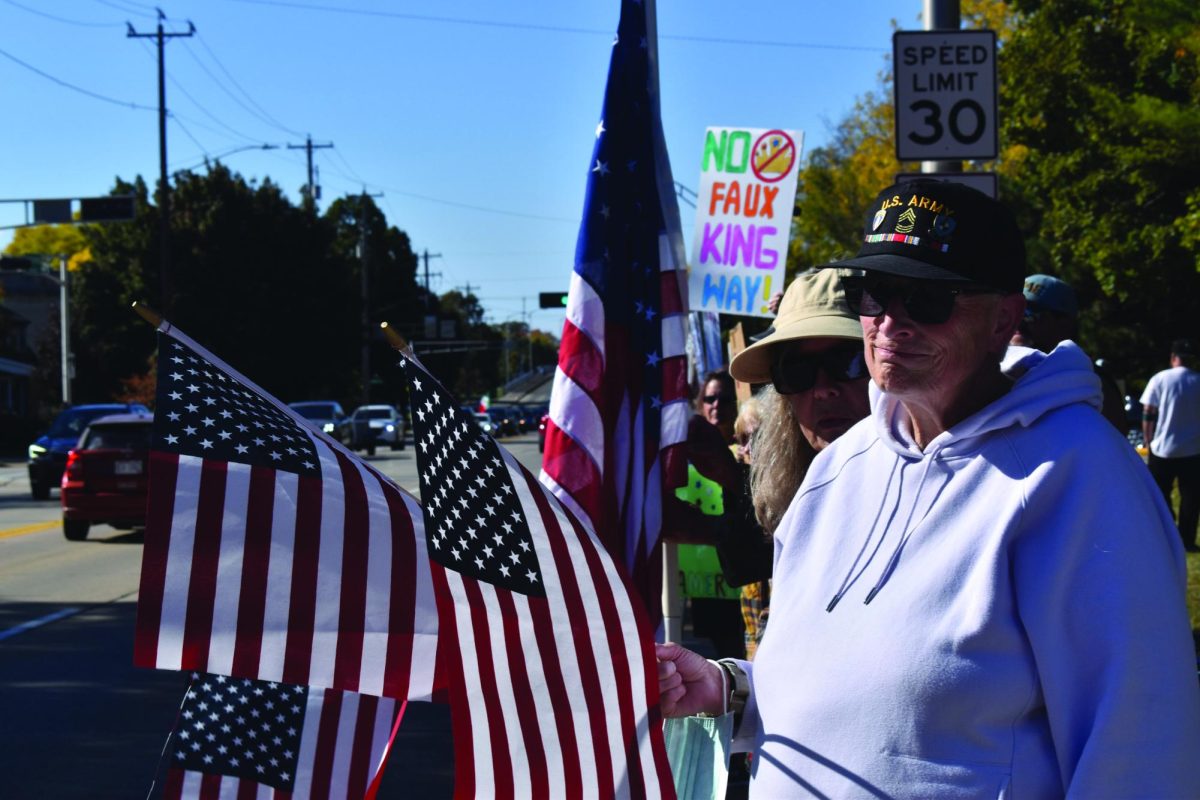During an election results watch party, more than 60 UW Oshkosh students and faculty members gathered in Titan Underground for wall-to-wall return coverage as ballots were counted Nov. 5.
For many students, this was their first time participating in a presidential election. Now, they just want it to be over.
“When we proposed this idea of having a watch party, [certain students] said ‘no, that’s not something I can do, I’ll be in bed with the covers over my head,’” Political Science Chair Tracy Slagter said.
UWO student Echo Czyznik, who voted for Harris, said he has been nervous about the election no matter the outcome.
“Either way, a good chunk of the people aren’t going to be happy,” he said. “I feel that there is one side who will have a bigger reaction, whether it’s positive or negative, than the other side. Either way, how the election goes, I worry for the large reaction.”
For students who have particularly had their hands in the election, just knowing that it’s over will alleviate the stress of the past few months.
President of UWO Democrats Bella Wishnie, who also voted for Harris, had been tabling, helping students register to vote and informing them about candidates since the beginning of the fall semester. She said the end of the election season will take away some of the anxiety she’s been feeling.
“Whatever the outcome is, it’s just going to be a weight off of our shoulders,” Wishnie said.
Vice Chair of UWO College Republicans Christian Mueller, who voted for Trump, had worked helping campaign for local Republican candidates including Tim Patterson and Anthony Phillips.
He said his involvement in the election has added a heavy workload on top of his regular responsibilities.
“It’s been a lot of stress,” he said. “We’re all students, too, at the same time.”
Slagter said these feelings of anxiety, stress and frustration can come from many different places, including a tumultuous past two presidential elections and the possibility that results may take longer than expected to be certified. She said these feelings are “totally normal.”
While political tensions have been high, Slagter said this isn’t necessarily a bad thing.
“Yeah, there’s a lot of anxiety about it, but at the same time, there’s just been a lot of enthusiasm,” she said.
Compared to past elections, Slagter said young voters are much more engaged than they have been historically.
“They really understand politics and they see politics as a way to get things done,” Slagter said. “It is a tool, a mechanism through which you can make positive change in the world — or prevent it, depending on what your point of view is.”
Wisconsin has seen an upward trend of voter turnout among young people. In 2022, the state saw the highest youth voter turnout in the nation’s midterm elections.
“I love working with our students now because they’re fired up about different things, on both sides of the political spectrum,” Slagter said.
However, this can pose a problem in the classroom after election results are tallied. Slagter said that after the 2016 presidential election, she saw a very clear divide in her classrooms that was difficult to navigate.
“To see one side completely morose and defeated and deflated and the other side jubilant, that was hard to manage in the classroom,” she said.
Slagter said that while she’s grateful that students are engaged, she encourages them to take care of their mental health, even if that means taking a step away from the political content for a while.
“It’s okay to not be connected to it 24/7,” she said. “Actually, we shouldn’t be connected to it 24/7.”
Slagter said that the best way to find peace while catastrophizing is to unplug and have genuine conversations with others.
“You don’t need to be perpetually online,” she said. “What you need to do is talk to your fellow humans and really understand the point of view that they have, even if it’s different from yours.”








